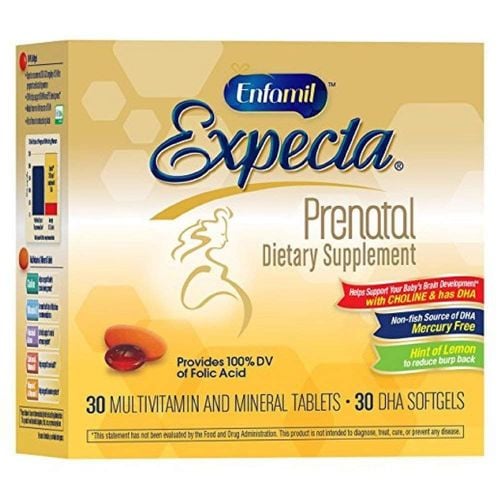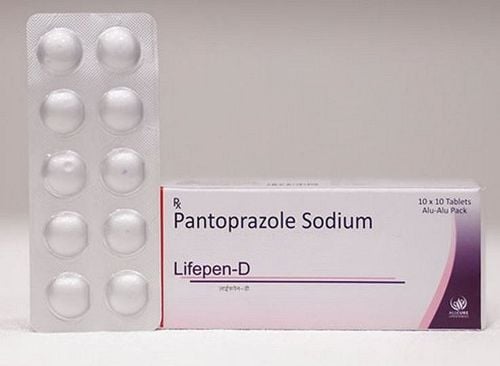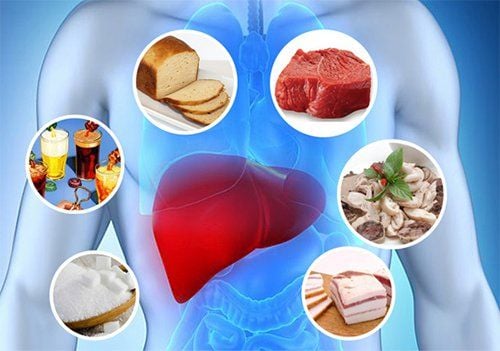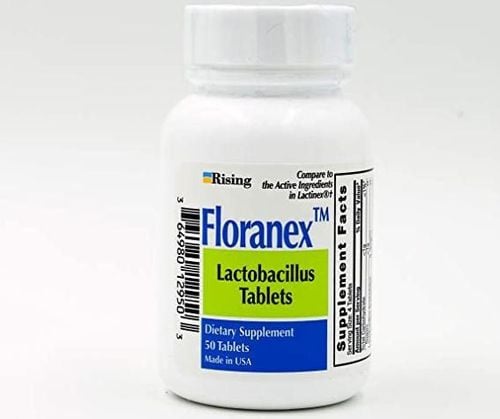This is an automatically translated article.
Digestive disorders in adults are quite common, this condition not only interferes with daily activities, but it also greatly affects the patient's health. So what to do when having digestive disorders in adults?
1. What causes digestive disorders in adults?
Digestion is the process of converting food into substances that the body can absorb through the walls of the digestive tract into the bloodstream. Digestion begins at the mouth and goes all the way to the large intestine. Anything that alters, interferes with, or upsets the digestion of food in the gastrointestinal tract can cause digestive disorders.
Calling adult digestive disorders is incorrect because this is not a disease but it is the result of certain causes. However, if this condition is prolonged and not properly treated, the patient will be able to suffer from digestive-related diseases, the most dangerous of which is intestinal cancer.
Causes of digestive disorders in adults include:
Abuse of alcohol, tobacco: The alcohol in alcohol makes the stomach contract more, secrete more gastric acid. Nicotine in cigarettes causes spasms, damages the stomach lining, which leads to digestive disorders. Unscientific diet: erratic eating habits, eating unhygienic food, stale or unknown origin, very easy to be invaded by bacteria, causing imbalance of microflora intestinal tract leading to abdominal pain, nausea, diarrhea, flatulence. Side effects of antibiotics: If you are using antibiotics continuously for a long time, antibiotics will destroy beneficial bacteria in the intestines, causing prolonged digestive disorders in adults. . This condition is easy to recur many times, difficult to get rid of. Due to pathology: A prolonged digestive disorder in adults can be caused by the disease you are suffering from, often accompanied by symptoms such as belching, heartburn, abdominal pain, nausea,... Balance the intestinal microflora: In our intestines, there are always good bacteria and bad bacteria, they keep a balance with each other to ensure health. For some reason, causing more harmful bacteria, crowding out beneficial bacteria will cause an imbalance of microflora leading to intestinal dysbiosis.

rối loạn tiêu hóa ở người lớn
2. Symptoms of gastrointestinal disorders in adults
Some typical signs of gastrointestinal disorders in adults such as:
Bloating, indigestion: This is the most common symptom when you have digestive disorders. You feel your stomach is tight, your brain is uncomfortable as if you have just eaten, even though you have not eaten much. The reason is that the digestion of food is affected so that the food is not fully digested, they ferment gas, causing bloating and gas. Nausea, vomiting a lot: When food is not digested and absorbed into the body, it will be fermented to produce gas, easily causing you to have food reflux, leading to nausea or vomiting, which may be accompanied by breathing symptoms. odor, high fever, dehydration. Frequent abdominal pain: People with digestive disorders will have abdominal pain appearing in different locations around the abdomen, which can be dull or intense depending on the severity of the disease. Heartburn, heartburn: When the stomach and duodenum are irritated, it often causes belching, heartburn and makes you feel uncomfortable, loss of appetite. Bowel disorders: Adults with long-term digestive disorders without proper treatment will lead to constipation or diarrhea, dysentery. Prolonged diarrhea will cause a loss of water and electrolytes, making the body tired and lose all strength. Long-term constipation will increase the risk of hemorrhoids.
3. How to treat digestive disorders in adults?
Many people with digestive disorders often subjectively do not treat or arbitrarily buy drugs, making the condition persistent and easy to relapse. When you see unusual signs, you should go to the doctor immediately to be examined and prescribed appropriate treatment, to avoid affecting the digestive system.
When suffering from digestive disorders, besides treatment, you need to pay attention to the diet. The diet should have all four groups of carbohydrates, fats, proteins, vitamins and minerals. Food needs to be cooked, the processing is hygienic, avoid eating raw, rare, or rancid food. Do not skip meals, you can divide meals for easy digestion.
Should eat more foods rich in fiber, vitamin C, drink orange juice and eat yogurt when having digestive disorders to supplement beneficial bacteria to help the intestines stabilize and work better. You also need to avoid using stimulants such as alcohol, carbonated drinks, hot spicy foods so as not to make the digestive system more irritated and disturbed.
At the same time, to help stimulate better intestinal contractions, you should exercise regularly, choosing exercises suitable for your health. You also need to get enough sleep so your body can rest. This healthy lifestyle is not only good for the heart and muscles, but it also helps to balance the secretion of digestive enzymes and regulate bowel movements.
Medicines commonly used in the treatment of digestive disorders such as pain relievers, anti-inflammatory drugs, can take more oresol to rehydrate and use probiotics to supplement beneficial bacteria for the digestive tract. thereby helping to absorb nutrients better, improving digestive disorders.

Người bệnh có thể dùng thuốc điều trị rối loạn tiêu hóa ở người lớn theo chỉ dẫn của bác sĩ
4. How to prevent digestive disorders in adults
To prevent digestive disorders in adults as well as other problems related to digestion, you need to build yourself a scientific lifestyle. Here are some tips for you to avoid digestive disorders:
Eat well, eat cooked and drink hot, limit the use of foods that irritate the digestive system, causing diarrhea. If you often suffer from constipation, you need to add more fiber and green vegetables in your diet to support the body's elimination process. Limit the use of alcoholic beverages. Supplement with probiotics or supplement good bacteria for the gut. Practice a scientific defecation habit, you should defecate once a day at the same time. Improve the body's resistance to fight biological agents that cause digestive disorders by supplementing vitamins and minerals, combined with regular exercise and sports. Today, modern medicine has developed extremely, people should go directly to the hospital to be examined by a doctor, thereby determining the cause and having a specific treatment plan. Regular health check-ups are also very practical to protect your own health.
Please dial HOTLINE for more information or register for an appointment HERE. Download MyVinmec app to make appointments faster and to manage your bookings easily.













